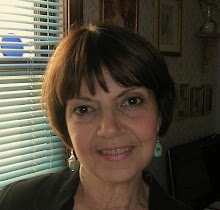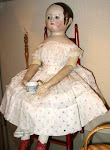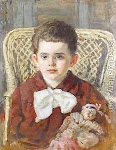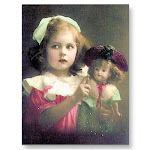Princess Victoria of Kent

On 24 May, 1819, the future Queen Victoria was born as HRH Princess Alexandrina Victoria to the Duchess of Kent at Kensington Palace, London. The parents-to-be had been living in Bavaria but rushed back to London to ensure the expected baby was physically as well as legally English, as she was born fifth in line to the British throne.
by Sir William Beechey
The princess was christened a month later and soon after her baptism the Kents moved to Devonshire where they could live less expensively. Victoria's father died of pneumonia less than a year later, so together with her mother, and half-sister Princess Feodora of Leiningen (1807 - 1872) they moved back to Kensington Palace where Victoria had been born.


 The artist Richard Lane chose to depict Victoria with auburn hair in his celebrated portrait of the young queen around 1837.
The artist Richard Lane chose to depict Victoria with auburn hair in his celebrated portrait of the young queen around 1837. Grodner-Tals woodens and Milliner's Model ca. mid 1800's
Grodner-Tals woodens and Milliner's Model ca. mid 1800'sThe girls were tutored by a governess (later Baroness) Louise Lehzen, whom Victoria adored. Lessons would have been conducted in languages, writing, music, history, art, arithmetic, geography and religion. In addition, Victoria was also taught to ride horses and she developed a passion for riding fast.
Although she was indulged and owned many pets, her childhood was lonely and secluded. In 1828 Victoria lost her one childhood companion when Feodora moved back to Germany and married Prince Ernst of Hohenlohe-Langenburg, although they regularly corresponded by letter until Feodora's death in 1872.

Grouping of German Chinas from the Victorian era.

When Queen Victoria was very young, she did not know she was destined to be the Queen of England. She wasn’t a good student, and did not take to her studies seriously. Her teachers were frustrated because of her lack of motivation, and could not succeed in preparing her for her future role.

 At the age of 11 the princess saw a Royal Family tree and supposedly remarked, 'I am nearer to the throne than I thought'. Then she vowed, 'I will be good'. According to Victoria's governess, she 'cried much' on learning that she might one day inherit the throne. This realization of responsibility profoundly affected her conduct from then on.
At the age of 11 the princess saw a Royal Family tree and supposedly remarked, 'I am nearer to the throne than I thought'. Then she vowed, 'I will be good'. According to Victoria's governess, she 'cried much' on learning that she might one day inherit the throne. This realization of responsibility profoundly affected her conduct from then on. Princess Victoria first met her cousin and future husband, when she was 16 years old. They met again when she was 19 and a queen. Betraying her innermost feelings, she described him thus: Excessively handsome, such beautiful eyes ... my heart is quite going!
Princess Victoria first met her cousin and future husband, when she was 16 years old. They met again when she was 19 and a queen. Betraying her innermost feelings, she described him thus: Excessively handsome, such beautiful eyes ... my heart is quite going!Enamel Portrait By Essex
The princesses was chaperoned wherever she went, and had to share her mother's bedroom, something she resented greatly. As soon as Victoria turned 18 she began to take charge of her own life - one of the first things she organized was her own bedchamber and ordering her mother to different quarters.
June 28th 1838... Charles Robert Leslie

In 1837, this 18 years old young doll collector came to reign over an explosion of communication and travel. Spreading ideas,industry and wealth around the world.
In 1844, Queen Victoria also reigned over the first International Exhibition in London organized by Prince Albert. As such, the traditional ways of making things, in this case dolls and fashions changed dramatically affecting cost and quality













































.jpg)





































































Hi marta! That is a great post with lots of information on Queen Victoria. And the dolls are so intresting to look at. They way they are made and clothed. Have a good day...Julian
ReplyDeleteThank you Julian;
ReplyDeleteVictorian England history is so interesting, this is the first of a group of posts from that era. I hope this piqued your interest for the rest.
Bisous
Marta
Thanks Marta!! es muy instructivo leer tu Blog.
ReplyDeleteMe parecen muy especiales las muñecas de cera, he visto muy pocas al natural, supongo que publicarás más imágenes de ellas.
Seguiré siguiendote, je, je, je!!!
Gracias Maria...Las muñecas de cera son magnificas, y seguramente veras algunas mas en mis proximos posts de Victoria. Tambien mas adelante presentare un post solamente en Wax Dolls y sus creadores.
ReplyDeleteMuchos besos y gracias por seguirme!
Marta
Hi Marta, Thanks for your visit today. And Thank you for the garden tip. Have a good day...Julian
ReplyDelete¡¡Hola Marta!! Celebro enormemente que te guste mi modesto trabajo!! Ya conocia tu blog y me encanta!! Ofreces muchísima información sobre muñequeria antigua y eso me fascina!! Enhorabuena por tan magnífico trabajo!! Un besote enorme desde España!!
ReplyDeleteMuchas gracias Pedrete, espero que mi blog le siga siendo interesante a tantos leales seguidores. Es un placer para mi escribir de las cosas que mas amo, Y la vez recibir tan lindos comentarios de un gran artista como tu. Estoy encantada con tu blog.
ReplyDeleteBisous
Marta
You always find such great photos and interesting stuff to post. :-)
ReplyDeleteThank you pandora..Its great to hear from you!
ReplyDeleteBisous
Marta
Muchas gracias por visitar mi blog :)
ReplyDeletecomo te habrás dado cuenta no escribo muy seguido en el, pero tratare de hacerlo.
me encantó tu blog y espero podamos seguir en contacto :)
mis mejores deseos.